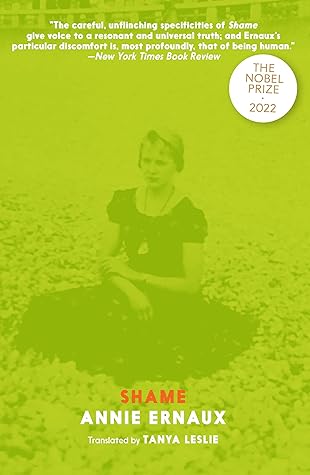More on this book
Community
Kindle Notes & Highlights
Language is not truth. It is the way we exist in the world. PAUL AUSTER The Invention of Solitude
It may be that narrative, any kind of narrative, lends normality to people’s deeds, including the most dramatic ones. But because this scene has remained frozen inside me, an image empty of speech—except for the sentence I told my lovers—the words which I have used to describe it seem strange, almost incongruous. It has become a scene destined for other people.
But the woman of 1995 can never go back to being the little girl of 1952, who knew nothing beyond her small town, her family and her convent school, and who had a limited number of words at her disposal. With the immensity of time stretching ahead of her. We have no true memory of ourselves.
Naturally I shall not opt for narrative, which would mean inventing reality instead of searching for it. Neither shall I content myself with merely picking out and transcribing the images I remember; I shall process them like documents, examining them from different angles to give them meaning. In other words, I shall carry out an ethnological study of myself.
take this, all of you, and read it, this is my body, this is the cup of my blood, it will be shed for you and for all men.
(To describe for the very first time, with no criterion other than accuracy, streets along which I used to walk as a child without ever thinking about them, is to expose the social hierarchy they implied. I almost feel I am committing a sacrilege: replacing the sweet landscape of memory—a whirl of impressions, colors and images (the Edelin Villa! the blue wisteria! the blackberry bushes in Champ-de-Courses!)—by a far harsher one that strips it of all magic, but whose truth cannot be questioned, not even by memory: in 1952 I could tell simply by looking at the lofty façades tucked away behind
...more
(This is where I am sitting, one evening in late May or early June, before that Sunday. I have finished my homework; there is a pervading sweetness in the air. I feel intoxicated by the future.
It’s just that it is a silent, ritual world where isolated sounds, linked to people’s daily routine, punctuate time and the passing of seasons: the Angelus bell of the old people’s home summoning its residents to get up or go to bed; the siren of the textile factory; the cars on market day; the barking of dogs and the dull thud of the spade hitting the earth in spring.
In our lives nothing is thought, everything is done. People are forever remembering.
And all those adjectives one found in women’s romances—a haughty bearing, to speak in sullen, contemptuous, supercilious, sarcastic or bitter tones—which in my mind could never apply to a real person or to anyone I knew. I believe that my writing is still confined to that material language of the past; the words and syntax which did not come to me at the time have never come to me. I shall never experience the pleasure of juggling with metaphors or indulging in stylistic play.)
Religion was my whole life. Believing and having to believe were the same thing.)
In his writings, Proust suggests that our memory is separate from us, residing in the ocean breeze or the smells of early autumn—things linked to the earth that recur periodically, confirming the permanence of mankind. For me and no doubt many of my contemporaries, memories are associated with ephemeral things such as a fashionable belt or a summer hit and therefore the act of remembering can do nothing to reaffirm my sense of identity or continuity. It can only confirm the fragmented nature of my life and the belief that I belong to history.)


